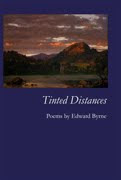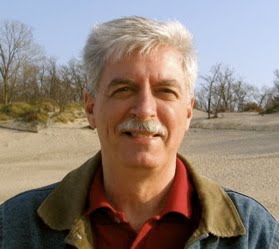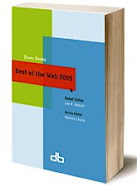 I was honored to be interviewed recently by Diane Lockward about aspects of my poetry, particularly focusing on “After the Miscarriage,” a poem from my new book, Seeded Light, as one entry in a series of talks with poets she calls “The Poet on the Poem.” Moreover, I am pleased to note that the questions and answers are now available at Blogalicious, Diane’s fine literary site.
I was honored to be interviewed recently by Diane Lockward about aspects of my poetry, particularly focusing on “After the Miscarriage,” a poem from my new book, Seeded Light, as one entry in a series of talks with poets she calls “The Poet on the Poem.” Moreover, I am pleased to note that the questions and answers are now available at Blogalicious, Diane’s fine literary site.I always enjoy participating in conversations concerning elements from the history of poetry and poetics, something I frequently find myself doing when in my office during different conferences with members of my creative writing classes and students of literary studies (one of whom took the photo seen here) or when sitting at my desk to jot down notes for posts entered in this blog. However, I was appreciative of an opportunity this time to discuss my personal practice in writing poetry and a few points on my approach to poetics, especially since I was engaging in dialogue with an individual whose work, as a poet and as a critic, I admire very much.
Indeed, readers will find a couple of Diane Lockward’s poems (“Hunger in the Garden” and “The Temptation of Mirage”) in the current issue of Valparaiso Poetry Review. Various other examples of Diane’s poetry and commentary can be found by visiting the archives of Valparaiso Poetry Review.
During the interview, I spoke about a number of issues—including my process of writing a poem, the manner and stage of composition in which a title is selected, my choice of form, the use of specific details to create texture as well as context, and the importance of lyricism within a poem, particularly in free verse. The following excerpt provides a sample from our conversation:
Diane Lockward: In addition to the work done by the title, your details provide an understory, a sub-text. For example, “boys in black coats,” “Shrill whistle,” “slow toll / of cathedral bells,” “morning Mass,” and “its own form of warning” convey an untold story and heighten the emotional intensity. How do you manage to balance the lyric and narrative impulses?
Edward Byrne: My style of writing seems to naturally combine lyric language and ingredients of narrative or implied narrative subtexts. I feel comfortable with this mixture. Indeed, I intend that the two parts complement one another. Most of the details you mention were added in revisions (although all of them come from specific memories I have about various actual instances) after I had established the context of the poem, and each was inserted in order to create an ambiance supporting the subject matter or as a contrast to the position in which the couple find themselves.
My personal history includes interest in film studies, a topic that I have taught over the years and about which I have written extensively in the past. As my wife can verify, when watching films I’m always conscious of the many minor components within the frame of the screen. Directors making movies are aware of the contribution subtle background atmosphere (natural scenery, weather, sounds, actions, set decorations, and extra actors populating the area) can add to a film moment’s dramatic tension and emotional tone, even offering possible undercurrents or sub-plots. In my poetry I try to think cinematically and inject images or elements evoking various senses, as well as objects that mirror the kind of attention to detail I observe in effective movie scenes.
I invite readers to visit Blogalicious to read the rest of the interview—which is also accompanied by the text of “After the Miscarriage” and a video presentation in which I read the poem—and I urge everyone to browse through the many excellent past posts offered by Diane Lockward at her blog.























No comments:
Post a Comment